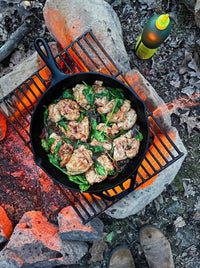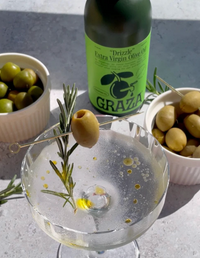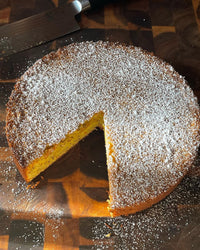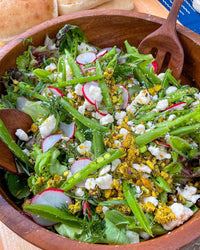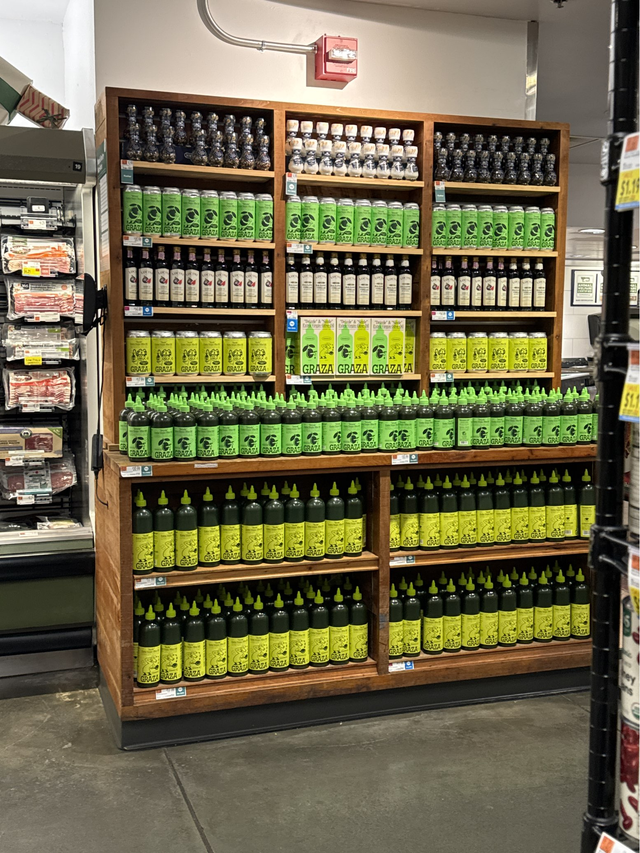
Olive Oil vs Vegetable Oil: Your Questions Answered
When it comes to cooking oils, we know there's a lot. The oil aisle can feel like studying for a test: what is the definition of a smoke point, which oil is best for that cookie recipe you've been eyeing, and what vegetables make vegetable oil? Not to fret and no need to study up, let's dive into this oil match up –– olive oil vs vegetable oil. Whether you're here for health reasons, flavors, or sheer curiosity, we'll unpack it. Spoiler alert: Extra Virgin Olive Oil might just steal the show.
What's the Difference Between Olive Oil and Vegetable Oil?
Source:
Olive Oil is sourced straight from olives (duh). Extra Virgin olive oil (EVOO) is the best variety of olive oil. The extraction process requires no chemicals and goes through minimal processing and refinement.
Vegetable oil is a melting pot of oils. It's made from soybean, corn, and canola oils processed together to create a neutral flavor.
Processing
Extra virgin olive oil is cold-pressed, keeping its nutrients intact. Vegetable oil is often refined, bleached, and deodorized that can strip away nutrients and antioxidants.
Flavor
Olive oil has a range of flavors, but EVOO is known for its grassy, peppery, and fresh olive taste. Vegetable oil has a bland, neutral flavor.
Which Oil is Healthier?
In terms of a healthier oil option, EVOO really starts to shine. EVOO is packed with monounsaturated fats, which help lower bad cholesterol (LDL) and boost the good kind (HDL). The polyphenols in olives are pressed right into EVOO, so it's full of antioxidants that fight off oxidative stress.
Vegetable oil contains polyunsaturated fats (still good!), some varieties are high in omega-6 fatty acids. Too much omega-6 can lead to inflammation if you're not balancing it with omega-3s. So if your heart had a vote, it would swipe right on olive oil.
Can I Cook with Both?
Absolutely, but let's break it down!
Smoke Points
EVOO has a smoke point of about 420F. Perfect for everyday cooking and baking. Vegetable oil has a range from 400-450F, which is better for high-heat frying.
Flavor Factors
EVOO adds depth to dishes. It complements flavors and adds delightful finishes. Vegetable oil is meant to disappear into the background. It's handy for high heat cooking, but doesn't add any tasting notes to a dish.
Pro tip: If you want oil that works hard AND tastes great, EVOO is the multitasker you need.
The Bottom Line
If you're after health benefits and flavor, extra virgin olive oil wins by landslide. It's the golden standard of oil––versatile, high-performing, and flavorful. Vegetable oil can be used, when neutrality is the goal. So we say, when in doubt grab that bottle of EVOO and drizzle it out! Your taste buds will thank you :-)
FAQS
Can I use olive oil for baking?
Absolutely! Extra virgin olive oil is amazing for baking. It adds a subtle, fruity flavor to every recipe.
Is it okay to fry with olive oil?
Yes! Extra virgin olive oil's smoke point is higher than most people think. Just keep it around that 420 range.
What's the deal with "light" olive oil?
Light refers to flavor and color, not calories. It's more refined and has fewer nutrients than EVOO.








